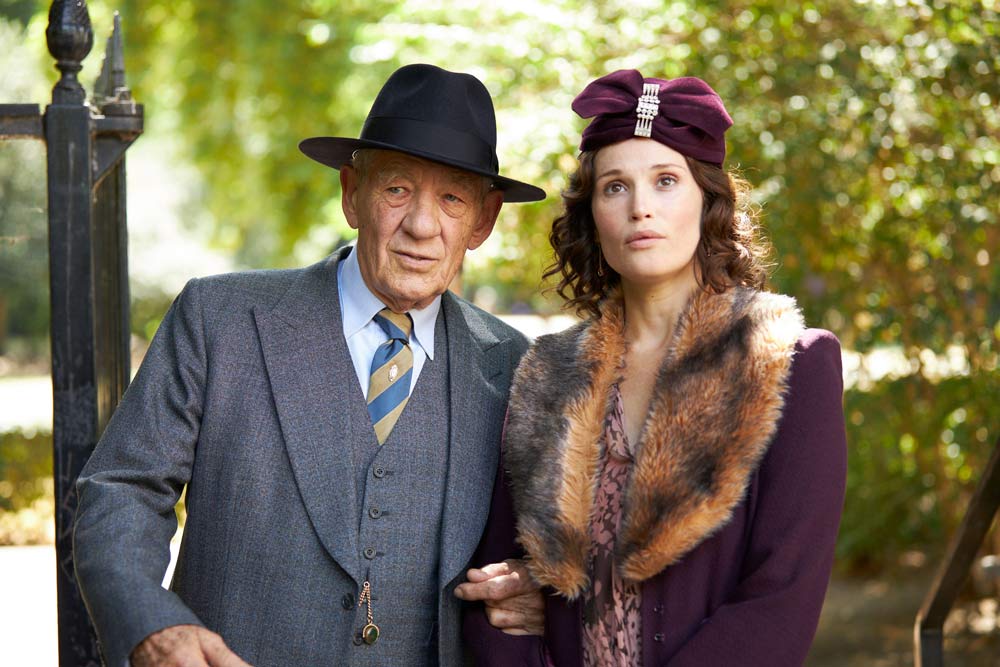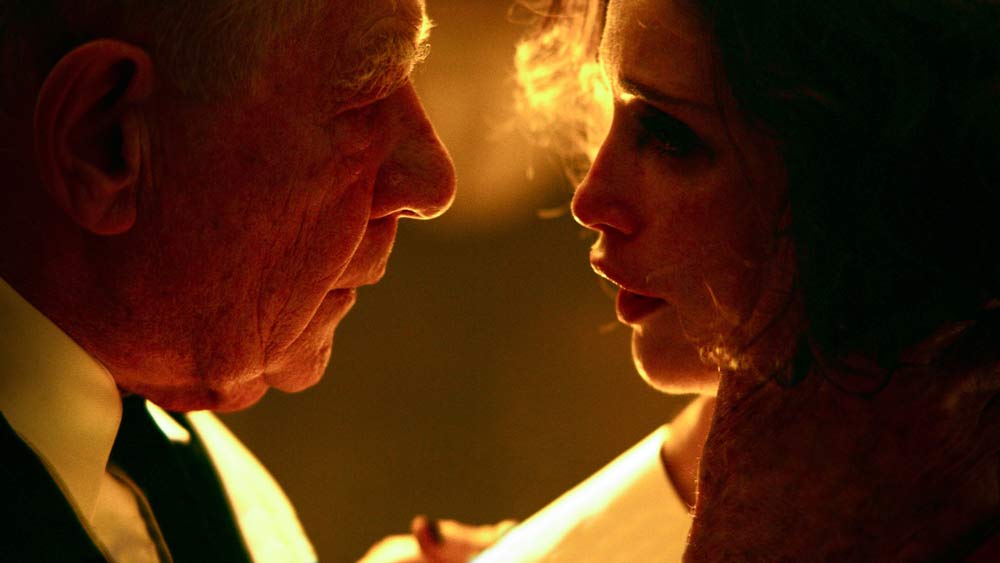Sep 12
EDGE Interview: Director Anand Tucker Channels Ian McKellen's Dark Side for 'The Critic'
Kilian Melloy READ TIME: 9 MIN.

EDGE: I love the period production on this film. Was the 1930s aesthetic something you were pleased to be working with?
Anand Tucker: Yeah. Who doesn't love all that beautiful art deco stuff? Lucienne Suren, the production designer, and I, and the DP, David Higgs, we looked at a lot of original photographs of 1930s London, and what really hits you is there's no cars. It's deserted, and it's really empty and minimal. That was quite a good lead for us, because we thought, "Okay, we don't have a lot of money. We have to shoot the film in five weeks, so we have to go fast. We'll go minimal. If we have something in the frame, it'll have to be the thing that most [speaks of] 1930s London in the viewer's [imagination].
We couldn't afford loads of sets or lots of CG. You'd be amazed how little 1930s London there actually is [in 2024] that you can actually film on. The filming style developed from that, which is, "Okay, we're going to be minimal; we're going to work with big close ups; we're going to work with quite stark frames and backlighting." We looked at [the 1945 John Brahms film] "Hangover Square," which is a great British noir film, which mainly takes place in London, in the fog, and you hardly see anything!
The final thing was, we looked at some beautiful restored color photos from that time, these beautiful three-strip Technicolor photos. I'm a huge fan of [filmmakers Michael] Powell and [Emeric] Pressburger, of course – [their 1946 film] "A Matter of Life and Death," and this beautiful English three-strip, muted, dark color. We tried to make a very expressive, dark, colorful film noir. I wanted you to have all the pleasures of a great British period drama – that it should look sumptuous and lovely, and that it should give you all the lovely things that you expect when you're going to sit down for a British heritage film with Ian McKellen, and some great witty dialog, and people in nice costumes. The film hopefully does seduce you into going along as it takes you to places that are quite dark.

EDGE: Fascist ideology was popular at that time in Britain and the U.S. It seems like you're finding a resonance there with our current moment.
Anand Tucker: One hundred percent, and that's one of the big things. When I read the script it felt like now, with the dilemmas facing those characters: If you're gay or an outsider, can you or can't you be who you are? In large parts of the world, you still can't.
The papers were exceedingly right wing, and the new media at the time was radio, and mass media was only just happening. The fascists were on the rise, and the black shirts were everywhere. Most of the British aristocracy supported [fascist Member of Parliament] Oswald Mosley; most of his friends were in the House of Lords. It's a dirty secret that's swept under the carpet, [but] Britain could very easily have been a fascist country.
And that's what's happening now. It's the same moment. We're having another massive disruption in how media is mediated and consumed, and who can control it, and how. It's 100 years, almost, and we're in the same cycle.
EDGE: You're executive producing "Europa," an upcoming dystopian thriller about Europe in a climate change-ravaged future. Can you say just a little about that?
Anand Tucker: I am indeed. I recommend everyone read the amazing series of incredibly quirky sci-fi books by Dave Hutchinson, [who] is a brilliant author. We've got the brilliant team [behind 2011's "Tinker, Tailor, Soldier, Spy"], of writer Peter Straughan and director Thomas Alfredson, who is a true cinematic genius. It's a "sci-spy" show like you've never seen before.
"The Critic" opens in theaters Sept. 13.
Kilian Melloy serves as EDGE Media Network's Associate Arts Editor and Staff Contributor. His professional memberships include the National Lesbian & Gay Journalists Association, the Boston Online Film Critics Association, The Gay and Lesbian Entertainment Critics Association, and the Boston Theater Critics Association's Elliot Norton Awards Committee.







